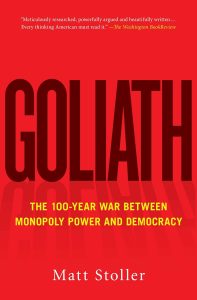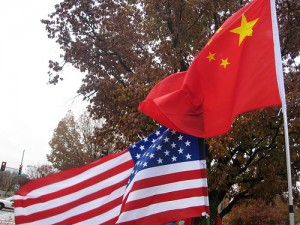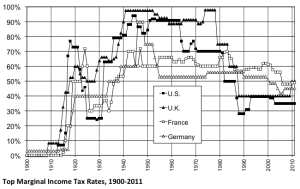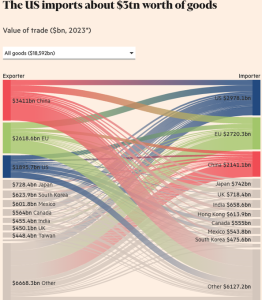Guest post by Whip Randolph
[From the One Disease One Cure Newsletter]
Remember that old story “The Emperor’s New Clothes”?
A con man tricks an emperor into believing that he is dressed in beautiful, expensive clothing when, in fact, he is wearing nothing at all. Afraid to be called a fool by this very confident man, the emperor pretends that he really is wearing beautiful clothing, and his close officials go along with it. The emperor then goes out among the public stark naked, and the masses of people pretend to admire his fine clothing. Everybody maintains this pretense until a child blurts out that the emperor is stark naked.
Why would all the adults pretend to believe an obvious falsehood? When I first found this story as a child, it seemed silly! Eventually I learned that this story actually explains one of the major drivers of racism and hatred in the world, including major events happening in the news right now.
So what does The Emperor’s New Clothes have to teach about ignorance, racism, and hatred happening right now?
In this story, the emperor is the ruler, meaning he decides on the laws and how they’re enforced, and he can punish people who express beliefs that he doesn’t like. The people in this story know that, and know that it is safer to believe that he is beautifully addressed, or at least pretend. After all, acknowledging the truth could lead to imprisonment or worse.
It’s simply a common pattern in unhealthy cultures for authorities to punish people for saying uncomfortable truths, and I believe this pattern will continue until we can generate healthy cultures again.
Let’s look at some historical examples to see how this works.
In the US pre-Civil War south, slavery was assumed to be good for the slaves by all right-thinking people. Doctors even had a diagnosis called “Draepetomania” where any slave who tried to escape was believed to have a mental illness! Why would they believe such nonsense, even highly trained doctors, instead of simply recognizing the evils of slavery and acknowledging peoples’ healthy desire to escape?
The answer is simple: any white Americans who acknowledged the evils of slavery were heavily punished. In the slave states, people could be imprisoned for 10 years for having a copy of Uncle Tom’s Cabin, a book that showed slavery in a sympathetic light. Draepetomania represents what I call a blind belief where people believe something because authorities make it the safe or convenient thing to believe, not because it’s true. In other words, it was safe for doctors to believe the runaway slaves had mental illnesses, and it was unsafe to see runaways as healthy and slavery as evil.
Likewise in the Soviet Union and China in the mid 20th century, the government and society were assumed to be great and getting better, so any activists were assumed to have mental illnesses as well. Many activists were arrested and accused of having mental disturbances and sent to prison hospitals where they were treated like the political prisoners they were. These activists were behaving legally and trying to serve their people, and authorities made up theories of mental illness as a cover story to justify imprisoning them.
In this social pattern, authorities punish people for speaking the truth, making it safe and socially acceptable to believe falsehoods. Unfortunately, this can also cause huge amounts of racism and hatred in a society, as people are encouraged to adopt racist or hateful attitudes, and those who don’t are punished.
The Ku Klux Klan was a campaign of paramilitary violence operated by wealthy ex-slaveowners in the US South after the US Civil War. Most Americans know that this violence was directed at black people to scare them into remaining second class citizens. But few know that this campaign also attacked any white people who sympathized with those black people!
In other words, whites who were racist were left alone or even rewarded. Any anti-racist white people risked rape, murder, having their house burned, or other atrocities. I believe this is a major driver of anti-black racism in the US South: authorities wanted that racism to avoid solidarity among poor white and black people, and for centuries they brutally punished any white people who tried to stand for what’s right. Many KKK members were sheriffs and politicians, so the law was part of the problem!
Similar stories abound from unhealthy cultures around the world — that is, societies where a few people rule over everyone else. Nazi Germans and Soviet citizens were each trained by their governments to hate the other side during World War II. Anyone who didn’t hate risked being called a sympathizer and traitor and going to jail. When these authorities wanted war, they propagated hatred among the populace and punished anyone who spoke the truth and refused to hate.
Why did so many Germans learn to hate Jewish people after World War I? Well, the German monarchy, business leaders, and generals had really screwed up and lost World War I. Knowing it was a foregone conclusion, they surrendered before the enemy had crossed into German territory. Unfortunately, they had lied to the German public, and the media contained propaganda which said they were winning the war until the moment they surrendered. Thus many Germans were really confused: why did they surrender if they were winning?
The political, military and business leaders wanted to avoid accountability for losing the war and spreading lies, so they propagated a “stab-in-the-back” narrative, blaming Jews, labor activists, liberals, and others for undermining the country from within.
A tragic number of Germans believed this nonsense, and it wasn’t an accident: propagating hate and ignorance towards Jews and activists and blaming them for Germany’s WWI defeat was a way for the ruling class to avoid accountability for losing the war and lying about it in the news. Tragically this was one step on the road to the Holocaust a few years later.
Racism, hatred, and ignorance can thus be widely propagated by authorities for a variety of reasons. It is confusing to discuss because authorities will punish someone for one secret reason, but publicly accuse them of something different. For example, a Nazi German peace activist may have tried to convince his neighbors that ending WWII would be better for the country, but he’d be arrested and accused of spreading Soviet propaganda and undermining the army. The activist was only trying to speak the truth or share a perspective in service of his people, but he was punished and accused of something different.
The more examples I found like this — where people are punished for acknowledging the truth, or punished for not being racist or hateful in ways that serve the needs of unaccountable ruling classes — the more I saw it play out right in front of me in the news.
Right now, the United States is supporting Israel in its genocide of the Palestinians. Israel has occupied Palestine for decades, keeping Palestinians under intense surveillance. The control was so tight that even many years ago the Israelis were literally counting the calories of food being allowed in to keep the Palestinians at starvation levels, continually a notch above famine.
The Israelis began the genocide in October 2023, with tremendous US support in the form of weapons, surveillance, fuel, political cover at the United Nations, and more. But just how bad has the violence been? Many news stories say that only 40-50,000 Palestinians have died — surely a tragedy, but not a genocide.
Before the present conflict started in October 2023, the Palestinian population was estimated at 2.2 million. When US President Trump took office, he stated the Palestinian population as around 1.7-1.8 million.[1] Other estimates confirm this, using normal techniques to estimate military+civilian casualties in war. So between October 2023 and February 2025, Israelis had killed ~400,000-500,000 people through military violence, famine, disease, and so on while extremely few Israelis have died.
How have the Israeli and American governments trained their population to tolerate and even support this genocide? You guessed it: spreading racist and hateful propaganda towards Palestinians, and punishing anyone who tried to speak the truth and stand up for what’s right.
Many government statements called the Palestinians subhumans deserving immense cruelty. For example, Israel’s defense minister Yoav Gallant said, “We are fighting human animals and we are acting accordingly.” Israelis were trained to see Palestinians as a threat on par with Nazi Germany, rather than victims of a cruel occupation.
In Israel, a school girl expressed sympathy with the Palestinians, saying she hoped they could return to their homes soon. She was suspended from school as other students threatened to burn her house down and the Ministry of Education accused her of “incitement against IDF [Israeli] soldiers.”
In America, we see similar disturbances. Anyone who tries to acknowledge the truth about Israeli aggression towards Palestinians is accused of antisemitism. President Trump is deporting many people for attending what he calls “illegal” protests and accusing universities of tolerating antisemitism for allowing protests against the genocide. This is only an expansion of the policy that his predecessor president Biden started.
And it’s not just the government that tries to scare protesters away from acknowledging the truth: many business leaders are trying to scare people into submission too. One businessman, Kevin O’Leary, went on television and said all activists were being monitored with AI-enabled cameras, and their protesting would be recordered and show up in background checks, and they would never be hired again! In fact, North Carolina outlawed wearing face masks outside just to make this possible.
Just like American slave owners scared poor and middle class white people into hating black people or remaining silent so they wouldn’t oppose slavery, modern day political and corporate leaders are trying to scare us into submission so we won’t oppose their genocide.
Why are Israeli and American government and corporate leaders supporting this genocide? People can only speculate: is it part of a plan for creating a major new west-Asian trade route through Israel? Accessing gas deposits off the Gaza coast? Developing beachfront real estate? All the above, or something else? When unaccountable leaders refuse to speak the truth, it can be difficult to know why they behave as they do.
So let’s take stock: the protests are legal, and the Israeli genocide against Palestine is real, and it’s not antisemitic to point these things out. But a strong coalition of American and Israeli business and political leaders have decided to support this genocide, and they’re punishing people for standing for what’s right by accusing them of antisemitism and using this as a cover story to justify punishing them.
This shows how ancient patterns of nations with rulers (or ruling classes) are playing out again all around us. America may not have a king, but anytime one person or a group can impose law on the rest, and choose how that law is enforced, you wind up with the same kind of tyrrany. This is predictable in any society where people are punished for upholding their own law (because that’s supposedly the police’s job, but of course they have to just follow orders). Ancient Rome, Germany, the Soviet Union, Israel, Canada, communist China, the capitalist United States — all of them have shown this pattern where authorities punish truth-tellers and propagate racism and hatred when it suits them. All these countries are actually dictatorships: cultures where some people dictate the law to everyone else, and everyone else is expected to just accept it.
These stories of selfish rulers contrast vividly with countless of stories of generous servant-leaders of healthy cultures. The Haudenosaunee describe how, when they were able to live in a fully traditional way until the early 1800s, their spiritual leaders were their political leaders, and to become a spiritual leader a person had to give away huge amounts of material goods. In other words, their leaders were the most generous.
Martin Prechtel described a similar pattern with the Tzutujil Mayans of central America. Leaders were expected to never campaign for office — it was up to others to see who should be leader and lift them up, due to their generous service. And each time a leader reached a new level in their hierarchy, they were expected to give away more and more goods, returning to total poverty so that they would be on the same level as the rest of the society. Like the Haudenosaunee, they chose the most generous leaders, the ones most willing to act in service of their people. They maintained this way of life until about 1990, when the Guatamalan military inflicted tremendous violence with American backing.
These stories seemed amazing when I first found them, but they are actually quite normal in societies that maintain a baseline of mutual respect as normal way of life, where everyone stands for what’s right as a normal way of life.
In these kinds of societies, I don’t see racism or hatred. So many problems, including racism, hatred, sexism, pollution, poverty in the midst of abundance, corruption, greed, child abuse, and more are symptoms of the root cultural disease where a few people rule over the rest. Any culture with this disease will show these symptoms, each in its own way. And I believe a single cure could end all these terrible troubles: creating cultures where everyone stands for what’s right, and no one rules over anyone else.
This is the theme of my free book One Disease One Cure. It explores examples of 69 different healthy cultures, including many alive today and others in the recent past, who maintain a baseline of mutual respect internally. They show that humans can live without racism or sexism or hatred. We can live without corruption and greed, with leaders that serve the people instead of selfishly serving themselves. Nations like the Ashaninka, Yequana, Haudenosaunee, Zapatista, Mbuti, traditional Cherokee and Nootka, and many others show that these terrible things are not inevitable. But so long as we remain in unhealthy cultures, with unaccountable rulers who behave extremely selfishly and punish anybody who stands for what’s right, all these terrible troubles will continue.
I will end on a positive note: the nations that make up the Haudenosaunee Confederacy have maintained their healthy culture for over 900 years till the present day, and they did this after experiencing a period of intense warfare 1,000 years ago. The Zapatistas are a collection of many different indigenous cultures in southern North America that experienced oppression for five centuries until 1994, when they rose up in resistance. They didn’t just install a new ruling class, but actually generated a new, sovereign healthy culture where the leaders serve the people, and everyone is expected to stand for what’s right. As but one example of the deep transformation, interviews with many Zapatista women attest to a dramatic decline in sexism.
These stories showed me that we’re not doomed to having unaccountable rulers. It’s possible to have deep change. But in order to do that, we must recognize the root cultural disease, and find a way to cure it: by creating cultures where everyone stands for what’s right, and nobody rules over anybody else.
[1] https://www.cbc.ca/news/world/trump-gaza-population-relocation-1.7457559
(The book contains citations for all this material, except Trump’s Palestinian population estimate which occurred after publication)


 Economics is largely a worthless discipline. Its axioms, like humans being rational utility maximizers, are simply wrong and everything built on top of them is thus flawed. It reminds me of pre-Copernican astronomy, which was based on the idea that the sun and planets revolved around the Earth. The difference is that pre-Copernican astronomy more or less worked and economics mostly doesn’t.
Economics is largely a worthless discipline. Its axioms, like humans being rational utility maximizers, are simply wrong and everything built on top of them is thus flawed. It reminds me of pre-Copernican astronomy, which was based on the idea that the sun and planets revolved around the Earth. The difference is that pre-Copernican astronomy more or less worked and economics mostly doesn’t.

 The final part of the economy is what you can get from other nations. Call this the external economy. Does someone else make it, will they sell it to you, can you afford it? Most of the time countries won’t sell other countries nukes, for example, and for much of history countries tried not to sell other countries the knowledge required to make advanced techs. When they didn’t prevent this, they paid big time: Britain was de-facto subjugated by America and America is now losing its Empire.
The final part of the economy is what you can get from other nations. Call this the external economy. Does someone else make it, will they sell it to you, can you afford it? Most of the time countries won’t sell other countries nukes, for example, and for much of history countries tried not to sell other countries the knowledge required to make advanced techs. When they didn’t prevent this, they paid big time: Britain was de-facto subjugated by America and America is now losing its Empire.